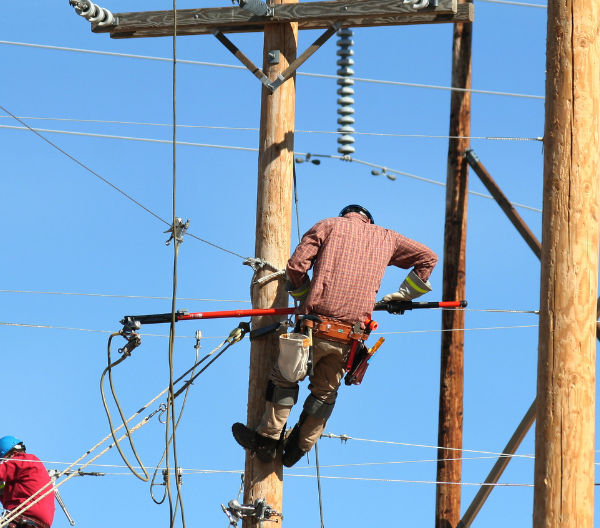Across industries, one trend is crystal clear: durable skills are the backbone of career success today and will be even more important tomorrow. The World Economic Forum’s Future of Jobs Report 2025 identifies durable skills such as analytical thinking, adaptability, collaboration, and leadership as among the core workforce skills of 2030; the skills that are critical now and will continue to increase in demand even as technology transforms the workplace. Simultaneously, headlines reveal that Gen Z is entering one of the tightest job markets in decades, where younger workers often struggle to demonstrate the very competencies employers prize most.
This intersection—durable skills shaping the future of work and Gen Z facing steep career challenges—underscores why our latest report, Durable by Design, is a must read for anyone hoping to close this gap.
Employers Are Clear: Durable Skills Drive Workforce Value
When America Succeeds launched the Durable Skills Initiative in 2021, we heard a consistent refrain from business leaders: employees, especially younger hires, often lacked the non-technical skills that make teams effective and help organizations thrive. To validate those claims, we partnered with Lightcast to analyze U.S. job postings. The findings were striking: in 2019–2020, 64% of all postings requested at least one durable skill, underscoring that these competencies were not “soft skills,” but essential skills.
Fast forward to today, and the trend has only grown stronger. In our updated analysis of nearly 76 million job postings from 2023-2024, Durable by Design shows that 76% of postings requested at least one durable skill, and nearly half requested three or more. Employers are not just hinting at the value of durable skills, they are embedding them deeply into their hiring and internal advancement.
A Tough Job Market for Gen Z: Durable Skills as a Differentiator
At the same time, younger workers are facing new challenges. Recent surveys highlight that many Gen Z hires are being let go within months of onboarding, with employers citing lack of motivation, poor communication, weak organizational skills, and unprofessional behavior as key concerns. In fact, six in ten employers report having already fired a recent graduate they hired.
This is not just a generational critique; it reflects a misalignment between what education and training systems prioritize and what the workplace demands. Employers consistently say that attributes like initiative, dependability, adaptability, and teamwork matter just as much, if not more, than technical knowledge, and yet those are rarely focus areas in schools.
This excerpt from a recent Fortune article illustrates the lengths to which young job candidates are going to stand out and demonstrate their durable skills in the hiring process:
“One young Silicon Valley marketing hopeful, Lukas Yla, knew he wouldn’t get far handing over his cover letter in-person, so he hatched a plan. When he was 25, the job-seeker posed as a delivery driver, handing over boxes of donuts with a secret memo attached on the inside. The note read “Most resumes end up in trash. Mine—in your belly,” along with his résumé and LinkedIn profile. He won over some employers, landing at least 10 interviews from the stunt.”
Lukas found a clever way to demonstrate fortitude, critical thinking, social skills, and creativity before the hiring managers had even read his resume. Millions of other job-seekers don’t have the time, capacity, and know-how to pull a stunt like his. But with or without donuts, durable skills are the differentiator that can help Gen Z workers stand out in a crowded applicant pool and succeed beyond the probationary period.
Durable Skills: The Workforce Currency of the Future
The WEF projects that by 2030, eight of the ten most crucial workforce skills will be durable skills. While AI and technological literacy will undoubtedly be essential, technology alone cannot replace human judgment, empathy, leadership, or creative problem-solving. In fact, even as automation grows, about two-thirds of tasks will still require human input.
This aligns with America Succeeds’ findings: durable skills are not only the most requested skills in job postings today, but also the competencies that will safeguard careers in a rapidly changing economy. For workers, developing durable skills means better chances at career mobility and long-term success. For employers, it means stronger teams and resilient organizations.
Preparing for Long-Term Success
The evidence is overwhelming. Durable skills are in demand now, and they will define the workforce of the future. But demand alone is not enough; we must act to ensure that the talent pipeline feeding our American workforce is filled with candidates who have durable skills. Education systems, workforce training providers, and employers need to intentionally integrate durable skills into teaching, hiring, and professional development.
Doing so ensures that students and workers alike are equipped not just to land a job, but to keep it, grow in it, and build meaningful, future-proof careers. As Durable by Design makes clear, durable skills are not optional—they are the foundation of individual success and collective prosperity.
Read the full report, Durable by Design, to dive deeper into the latest job postings data and explore America Succeeds’ trademarked durable skills solution, Pathsmith™ to learn how you can prepare today’s learners for tomorrow’s workforce.




